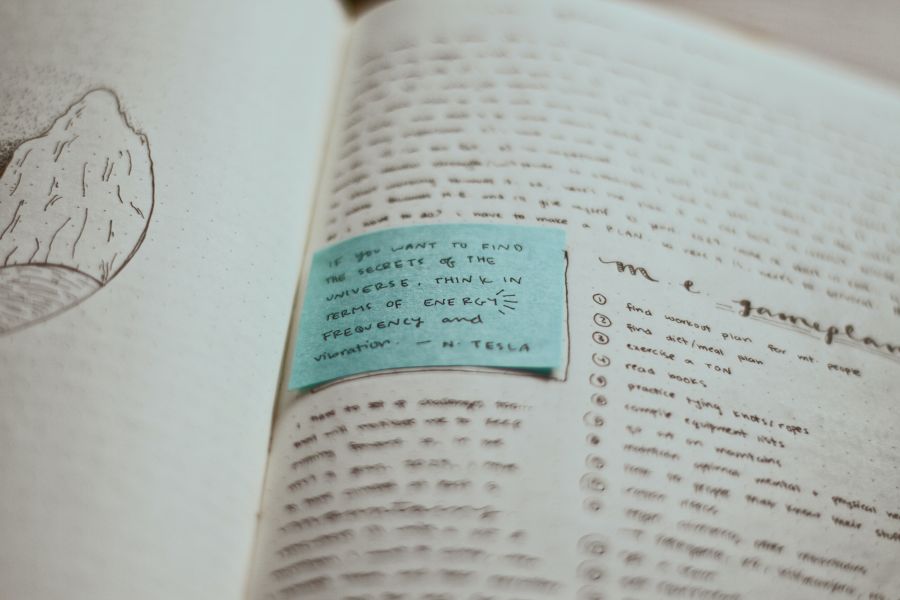高考英语听力真题(湖南卷)
Section A (22.5 marks)
Directions: In this section,you will hear six conversations between two speakers. For each conversation, there are several questions and each question is followed by three choices marked A, B and C. Listen carefully and then choose the best answer for each question.You will hear each conversation TWICE.
Conversation 1
1. What will the woman do first?
A. Take a shower. B. Go camping. C. Set up a time.
2. When will the man probably call the woman?
A. Thursday. B. Friday. C. Sunday.
Conversation 2
3. What is the man going to do?
A, Have a coffee break. B. See a doctor. C. Buy a pet.
4. What happened to the man?
A. He fell ill. B. He lost his dog. C. He slept badly.
Conversation 3
5. What is the woman?
A. A bus driver. B. A waitress. C. A tour guide.
6. What does the man want to get?
A. Some gifts. B. A menu. C. A bus schedule.
Conversation 4
7. What did the man do yesterday?
A. He saw a movie. B. He watched TV. C. He visited some friends.
8. What time will the speakers probably meet this Saturday evening?
A. At 6:30. B. At 7:00. C. At 7:30.
9. Which of the following will the man buy?
A. Some drinks. B. A birthday cake. G. Concert tickets.
Conversation 5
10. What is the woman doing now?
A. She is serving a customer.
B. She is conducting an interview.
C. She is doing some recording.
11 .When does the man go to the nursing home?
A. Tuesdays. B. Thursdays. C. Sundays.
12. Where will the man probably be working next Monday?
A. At the airport nearby.
B. In the studio next door,
C. At the store downtown.
Conversation 6
13. Why does the woman call the man?
A. The oven doesn't work.
B. The heater won't start.
C. The plug is broken.
14. Who will handle the problem first tomorrow evening?
A. The woman. B. The man. C A worker.
15. Who is the woman speaking to?
A. Her husband. B. Her house owner. C. Her boss.
Section B (7.5 marks)
Directions: In this section, you will hear a short passage. Listen carefully and then Jill in the numbered blanks with the information you have heard. Fill in each blank with NO MORE THAN THREE WORDS.You will hear the short passage TWICE.
pic 1Text 1
M: Well, it's been this hot for so long.
W: Yeah, I can't wait to go home and take a cold shower.
M: The worst should be over soon. I know it will be cool by this Thursday.
W: Really. I guess we can go camping on Sunday. Give me a call on Friday to set up the time. OK?
Text 2
M: Hi! Jean! I am going out for a coffee break. Will you join me?
W: Sure! Oh! Peter, you look tired. Are you getting sick?
M: No. My new neighbor's dog kept me awake all night. It never stopped barking.
W: Oh, dear. You'd better go and talk to your neighbor about it.
Text 3
M: Ladies and gentlemen, right now, it is 12 o'clock, and we are going to stop at this restaurant for lunch. The bus driver will pick you up in an hour.
W: Where will he meet us?
M: Right here, in front of the restaurant. And be sure to be on time.
W: But I want to buy some gifts before we leave. Do you know any good place around here?
Text 4
M: Hello, Brian's speaking.
W: Hi! Brian, it's Mary here. Hope I haven't caught you at a bad time.
M: No, no. I was just watching TV.
W: Oh, good. Have you had a good weekend?
M: Yeah. It's been good. I went to the cinema with some friends yesterday. What about you?
W: Not too bad. Hey, actually, I am calling because it's my birthday this Saturday. I was wondering if you would come.
M: That sounds good. That time?
W: It's 7 o'clock, OK? David won't finish work until 6:30.
M: Oh, sorry. I am afraid I can't make it. Is 7:30 all right?
W: Sure. 7:30, then. Do you want me to bring something, like a cake or some drinks?
M: Oh, no. I will get the food and everything. Just come and help me celebrate.
W: Oh, in that case. I will invite you to the piano concert next Friday.
M: That will be great. Thanks.
W: OK, I will get the tickets now.
Text 5
M: Do you have any job experience?
W: Only a little. I helped out on my father's office last year. And I worked in a recording studio last month.
M: That's good. Can work every day?
W: Yes, I can work any day of the week. Oh, no, except Thursday. I work at a nursing home in the neighborhood that day.
M: When would you be able to start?
W: Next Monday.
M: OK. That's great. We have two stores, a very busy one downtown and one near the airport with almost no customers even on weekends.
W: I want to work near the airport.
M: Good. Everyone now hates it. There are few customers, so you will most likely be doing jobs such as carrying big boxes and cleaning.
W: Oh, no. Er, wait. er, I like the store downtown.
M: OK. That's settled. See you next Monday.
Text 6
W: Hello! Tony speaking!
M: Hi! It's Susan from your flat on Main Street.
W: Oh. Hi, Susan, what can I do for you?
M: Em, we've got a bit of problem in the flat. The oven is not working. I found it yesterday. It was on, but it wasn't getting hot. I had a look at the plug. But it seems to be OK. Could you get someone to come to have a look at it for us?
W: Ah, was it working yesterday?
M: Yeah, but we couldn't get it going last night. We use it quite a lot. So it will be good if we could it fixed.
W: Oh, OK. Ah, I will come around and see if I can fix it. If I can't, I will get a worker in or get it changed instead.
M: OK, thanks a lot.
W: Ah, I won't be able to come until tomorrow evening. See about 7. Will someone be at home then?
M: Oh, yeah. I will be here.
W: OK, then. See you about 7. Bye!
Text 7
Hello, Sam. This is Kelly Black. I will be out of the office all day today. Here is a list of things you will need to do. First please call Mr. Brown and change the time of the appointment. Also send an e-mail to everybody in the office and remind them of the meeting next week. Don't forget to speak to the repairman about the broken light in my office. Hm. Let's see. I know there are a few more things. Oh, yes. Please make a list of all the employees and give it to Miss Baxter, owner of the gift shop. OK, Sam. I think that's everything. Oh, one more thing. Please take the package on my desk to the post office if you have time. And that's it. Thanks, I will see you tomorrow morning.1-5 ABACC
6-10 AACCB
11-15 BCABB
16. change
17. meeting
18. light
19. gift shop
20. the package
高考英语听力真题(全国卷)
第一节(共5小题;每小题1.5分,满分7.5分) 听下面5段对话。每段对话后有一个小题,从题中所给的A、B、C三个选项中选出选项,并标在试卷的相应位置。听完每段对话后,你都有10秒钟的时间来回答有关小题和阅读下一小题。每段对话仅读一遍。 1. What does the woman want to do? A. Find a place. B. Buy a map. C. Get an address. 2. What will the man do for the woman? A. Repair her car. B. Give her a ride. C. Pick up her aunt. 3. Who might Mr. Peterson be? A. A new professor. B. A department head. C. A company director. 4. What does the man think of the book? A. Quite difficult. B. Very interesting. C. Too simple. 5. What are the speakers talking about? A. Weather. B. Clothes. C. News.
第二节(共15小题;每小题1.5分,满分22.5分) 听下面5段对话或独白。每段对话或独白后有几个小题,从题中所给的A、B、C三个选项中选出选项,并标在试卷的相应位置。听每段对话或独白前,你将有时间阅读各个小题,每小题5秒钟;听完后,各小题给出5秒钟的作答时间。每段对话或独白读两遍。
听第6段材料,回答第6、7题。 6. Why is Harry unwilling to join the woman? A. He has a pain in his knee. B. He wants to watch TV. C. He is too lazy. 7. What will the woman probably do next? A. Stay at home. B. Take Harry to hospital. C. Do some exercise.
听第7段材料,回答第8、9题。 8. When will the man be home from work? A. At 5:45. B. At 6:15. C. At 6:50. 9. Where will the speakers go? A. The Green House Cinema. B. The New State Cinema. C. The UME Cinema.
听第8段材料,回答第10至12题。 10. How will the speakers go to New York? A. By air. B. By taxi. C. By bus. 11. Why are the speakers making the trip? A. For business. B. For shopping. C. For holiday. 12. What is the probable relationship between the speakers? A. Driver and passenger. B. Husband and wife. C. Fellow workers.
听第9段材料,回答第13至16题。 13. Where does this conversation probably take place? A. In a restaurant. B. In an office. C. In a classroom. 14. What does John do now? A. He's a trainer. B. He's a tour guide. C. He's a college student. 15. How much can a new person earn for the first year? A. $10,500. B. $12,000. C. $15,000. 16. How many people will the woman hire? A. Four. B. Three. C. Two.
听第10段材料,回答第17至20题。 17. How long has the speaker lived in a big city? A. One year. B. Ten years. C. Eighteen years. 18. What is the speaker's opinion on public transport? A. It's comfortable. B. It's time-saving. C. It's cheap. 19. What is good about living in a small town? A. It's safer. B. It's healthier. C. It's more convenient. 20. What kind of life does the speaker seem to like most? A. Busy. B. Colourful. C. Quiet.Text 1 W: Excuse me. This is the address. How do I find it? M: Right. You'll need a street map. Here's one, and I'll show you where it is. Text 2 W: Oh my! My car broke down, and I have to meet my aunt at the railway station before noon. M: You're lucky. I can drop you off on my way.
Text 3 W: Did you hear that Mr. Peterson is coming next week, Gordon? M: Yes, so I called all the department heads to my office this morning. We need to give him reports on our program.
Text 4 W: I hope you like the book I lent you. I wasn't sure if you'd be interested. M: I had the same doubt at first. But once I started, I simply couldn't put it down.
Text 5 W: What is going on? It's May, and we still have to wear warm clothes. M: Well, there's some good news on the radio. You probably can wear shorts tomorrow.
Text 6 W: Harry, let's play some ping-pong today. M: I'd love to play a set or two, but my right arm hurts. I've decided to stop playing ping-pong until it feels better. W: Well, how about going skating? M: I'd like to, but my knee hurts, too. W: Harry, stop making excuses! You're just lazy. M: No, I'm not! You know, there's a basketball match on TV today. Let's just stay home and watch it. W: OK. You stay, and I'll play with Helen.
Text 7 W: What do you want to do tonight? M: How about going to the cinema? I should be home from work at 5:45. Then we can go out and eat before we see a film. W: What do you want to see? M: There's a good art film at the Green House Cinema. W: Let's see…it starts at 6:15. I don't think we can get there in time to see the beginning. How about the action film at the New State Cinema? It starts at 6:50. Perhaps the 7:00 one at the UME Cinema is even better. It stars Jackie Chan. M: OK, that's fine. I like him, too.
Text 8 M: Hey, Lucy. Do you have some time to talk about next week's trip with me? W: Sure, Dave. M: OK. So, we're leaving on Monday from Hartsfield International Airport, and returning on Friday. Do we take ourselves to the airport? Maybe we need to book a taxi, or just go by bus. W: No, we don't have to. The company car will pick us up and take us there. M: Oh, that's good. When? W: Our flight leaves at 11:00 a.m., so they should pick us up between 8:00 and 9:00 a.m. Besides, the company pays for our trip, including hotel and food. M: How much will that be? W: Well, New York is a pretty expensive city. So, each of us will get $200 a day. M: Oh, OK. Thanks for telling me that. W: You're welcome.
Text 9 W: Please sit down. Let's see…you're Mr. Smith. Is that correct? M: Yes. John Smith. W: And you're interested in this job? M: Yes, I am. I'll graduate from college the coming June. My major is Chinese. W: I see. Have you ever done any work in this field? M: Yes, I used to be a tour guide for Chinese travellers. W: Good. Now, how much money do you expect to have for a year? M: From what I've read, it seems that a starting pay would be around $12,000 a year. W: Here, you would start at $10,500 for the first year…a kind of training period. Then you would go to $15,000. M: That sounds fair enough. What do you think are the chances for me to get a job here? W: Well, I'm talking to three people today and four tomorrow. We'll be hiring two people. You'll hear from us sometime next month. Good luck! And thanks for coming in today.
Text 10 M: Well, I'd love to share with you my personal opinions on city life and life in small towns. I grew up in a small town until I was 18 and then moved to a big city, so I have experienced the good and bad sides of both. I never thought that I would like living in a big city, but I was wrong. After ten years of living in one, I can't imagine ever living in a small town again. Surely small towns and big cities both have some problems in terms of transport. In a small town, you have to own a car to make life comfortable. You can't get around without one because there isn't any kind of public transport. Big cities generally have heavy traffic and expensive parking, but there you have a choice of taking public transport, which is cheaper than driving. So, if you don't have a car, you'd better live in the city. I also love the exciting life in big cities. I can always enjoy a lot of films, concerts, and other wonderful shows. However, these things are not common in small towns. The final thing I like about large cities is that you can meet different kinds of people. However, you seldom find such a variety of people in a smaller town. I think that living in an area where everyone was just like me would quickly become dull. Of course, safety should be considered, and that's one area where small towns are better than big cities. Still, I would rather be a bit more careful and live in a large city than to feel safe but dull.1-5 ABCBA 6-10 BCACA 11-15 ACBCA 16-20 CBCAB
历年大学英语六级听力真题
短对话: 1.
M: Before we play again, I’m going to buy a good tennis racket.
W: Your shoes aren’t in a very good shape either.
Q: What does the woman mean?
2.
M: Barbara, I’d like you could assist me in the lab demonstration. But aren’t you supposed to go to Dr. Smith’s lecture today?
W: I ask Cathy to take notes for me.
Q: What do we learn from the conversation?
3.
W: Steve invited me to the dinner party on Sunday evening. Have you received your invitation yet?
M: Yes, he found me this morning and told me he wanted all his old classmates to come to the reunion.
Q: What do we learn from the conversation?
4.
W: I’m afraid I’m a little bit seasick. I feel dizzy.
M: Close your eyes and relax. You’ll be all right as soon as we come at shore.
Q: Where does the conversation most probably take place?
5.
W: I wonder what’s happened to our train. It should have been here twenty minutes ago according to the timetable. But it’s already 9:30.
M: There’s no need to get nervous. The announcement says it’s forty minutes late.
Q: When is the train arriving?
6.
M: John is handsome and wealthy. Believe it or not, he is still a bachelor.
W: He is a notorious guy in many girls’ eyes. I’m sick of hearing his name.
Q: What does the woman mean?
7.
M: Cars had lined up bumper to bumper. And I’ve been held up on the express way for the entire hour.
W: Really? It must be a pain in the neck. But be patient, anyway, you can do nothing but wait.
Q: What do we learn about the man?
8.
W: Yesterday I was surprised to see Mary using that washing machine you’re going to throw away.
M: Yes, it’s quite old and in a very poor condition. Frankly speaking, that she got it working amazes me a lot.
Q: What does the man imply about Mary?
长对话:
Conversation 1
M: A recent case I heard was of a man accused and found guilty of breaking into a house and stealing some money.
W: Well, was he really guilty, judge?
M: He admitted that he’d done it, and there were several witnesses saying that he had indeed done it. So I can only assume that he was guilty.
W: Why did he do it?
M: Well, the reasons were little muddied, probably at least it seemed in a trial that he did it to get some money to feed his family. You see, he’d been out of work for some time.
W: Well, he’d been out of work and he chose to break into a house to get money for his family and apparently in front of people that, err... could see him do it.
M: His attorney presented testimony that he had indeed applied for jobs and was listed with several employment agencies, including the state employment agency, but they weren’t any jobs.
W: And he had no luck!
M: He had no luck and it’d been some time. He had two children and both of them were needing food and clothing.
W: So he was in desperate circumstances. Did you sentence him?
M: Yes.
W: But what good does it do to put the man into jail when he’s obviously in such need?
M: This particular fellow has been in prison before.
W: For the same thing?
M: No, for a different sort of crime.
W: Huh?
M: But he did know about crime, so I suppose there are folks that just have to go back to prison several times.
9. What did the judge say about the case he recently heard?
10. What do we learn about the man at the time of crime?
11. What did the judge say about the accused?
Conversation 2
M: Ah, how do you do, Ms. Wezmore?
W: How do you do?
M: Do sit down.
W: Thank you.
M: I’m glad you’re interested in our job. Now, let me explain it. We plan to increase our advertising considerably. At present, an advertising agency handles our account, but we haven’t been too pleased with the results lately and we may give our account to another agency.
W: What would my work entail?
M: You’d be responsible to me for all advertising and to Mr. Grunt for public relations. You’d brief the agency whoever it is on the kind of advertising campaign we want. You’d also be responsible for getting our leaflets, brochures and catalogs designed.
W: I presume you advertise in the national press as well as the trade press.
M: Yes, we do.
W: Have you thought about advertising on television?
M: We don’t think it’s a suitable medium for us. And it’s much too expensive.
W: I can just imagine a scene with a typist sitting on an old-fashioned typing chair, her back aching, exhausted, then we show her in one of your chairs. Her back properly supported filling full of energy, typing twice as quickly.
M: Before you get carried away with your little scene, Ms. Wezmore, I regret to have to tell you again that we are not planning to go into television.
W: That’s a shame. I’ve been doing a lot of television work lately and it interests me enormously.
M: Then I really don’t think that this is quite the right job for you here, Ms. Wezmore.
12. What does the man think of their present advertising agency?
13. What would the woman be responsible for to Mr. Grunt?
14. What is the woman most interested in doing?
15. What does the man think of the woman applicant?
短文一
Many foreign students are attracted not only to the academic programs at a particular U.S. college but also to the larger community, which affords the chance to soak up the surrounding culture. Few foreign universities put much emphasis on the cozy communal life that characterizes American campuses from clubs and sports teams to student publications and drama societies. “The campus and the American university have become identical in people’s minds,” says Brown University President Vartan Gregorian. “In America it is assumed that a student’s daily life is as important as his learning experience.”
Foreign students also come in search of choices. America’s menu of options—research universities, state institutions, private liberal-arts schools, community colleges, religious institutions, military academies—is unrivaled. “In Europe,” says history professor Jonathan Steinberg, who has taught at both Harvard and Cambridge, “there is one system, and that is it.” While students overseas usually must demonstrate expertise in a specific field, whether law or philosophy or chemistry, most American universities insist that students sample natural and social sciences, languages and literature before choosing a field of concentration.
Such opposing philosophies grow out of different traditions and power structures. In Europe and Japan, universities are answerable only to a ministry of education, which sets academic standards and distributes money.
While centralization ensures that all students are equipped with roughly the same resources and perform at roughly the same level, it also discourages experimentation. “When they make mistakes, they make big ones,” says Robert Rosenzweig, president of the Association of American Universities. “They set a system in wrong directions, and it’s like steering a supertanker.”
16. What does the speaker say characterizes American campuses?
17. What does Brown University president Vartan Gregorian say about students' daily life?
18. In what way is the United States unrivaled according to the speaker?
19. What does the speaker say about universities in Europe and Japan?
短文二
Hello, ladies and gentlemen, welcome aboard your Sea-link ferry from Folkestone to Boulogne and wish you a pleasant trip with us. We are due to leave Folkestone in about five minutes and a journey to Boulogne will take approximately two hours. We are getting good reports of the weather in the Channel and in France, so we should have a calm crossing. Sun and temperatures of 30 degrees celsius are reported on the French coast. For your convenience on the journey, we'd like to point out that there ar e a number of facilities available on board. There's a snack bar serving sandwiches and hot and cold refreshments situated in the front of A deck. There is also a restaurant serving hot meals situated on B deck. If you need to change money or cash travelers' checks, we have a bank on board. You can find a bank on C deck. Between the ship's office and the duty free shop, toilets are situated on B deck at the rear of the ship and on A deck next to the snack bar. For the children, there's a games room on C deck next to the duty free shop. Here children can find a variety of electronic games. Passengers are reminded that the lounge on B deck is for the sole use of passengers traveling with cars and that there is another lounge on C deck at the front of the ship for passengers traveling without cars. Finally, ladies and gentlemen, we'd like to wish you a pleasant journey and hope that you'll travel with us again in the near future.
20. What does the speaker say about the Sea-link ferry?
21. Where is the snack bar situated?
22. What does the speaker say about the lounge on B deck?
短文三
On Christmas Eve in 1994, humans entered a cave in the mountains of southeastern France for what was probably the first time in 20,000 years. The vivid images of more than 300 animals that Jean-Marie Chauvet and his assistants found on the cave walls were like none that they had seen before. Unusual in the Grotte Chauvet, as the cave is now called in honor of its discoverer, are paintings of many flat sheeting animals. Other known caves from the same geographical area and time period contain only paintings of plantites. The paintings in this cave refute the old theory that Cro-Magnoon people painted animals that they hunted and then ate. Now many specialists believe that cave paintings were not part of a ritual to bring good luck to hunters. They point out that while deer made up a major part of their diet, there're no drawings of deer. They believe that the animals painted were those central to the symbolic and spiritual life of the times; animals that represented something deep and spiritual to the people. Scientists are hopeful that Groo Chavie will yield new information about the art and lifestyle of Cro-Magnoon people. They readily admit, however, that little is understood yet as to the reasons why ice age artists created their interesting and detailed paintings. Scientists also wonder why some paintings were done in areas that are so difficult to get to, in caves, for example, that are 2,400 feet underground, and accessible only by crawling through narrow passageways.
23. How did the cave get its name?
24. What is the old theory about the paintings in the cave?
25. What do scientists readily admit according to the speaker?
听力填空:
If you are attending a local college, especially one without residence halls, you'll probably live at home and commute to classes. This arrangement has a lot of advantages. It's cheaper. It provides a comfortable and familiar setting, and it means you'll get the kind of home cooking you're used to instead of the monotony (单调) that characterizes even the best institutional food.
However, commuting students need to go out of their way to become involved in the life of their college and to take special steps to meet their fellow students. Often, this means a certain amount of initiative on your part in seeking out and talking to people in your classes whom you think you might like.
One problem that commuting students sometimes face is their parents' unwillingness to recognize that they're adults. The transition from high school to college is a big one, and if you live at home you need to develop the same kind of independence you'd have if you were living away. Home rules that might have been appropriate when you were in high school don't apply. If your parents are reluctant to renegotiate, you can speed the process along by letting your behavior show that you have the responsibility that goes with maturity. Parents are more willing to acknowledge their children as adults when they behave like adults. If, however, there's so much friction at home that it interferes with your academic work, you might want to consider sharing an apartment with one or more friends. Sometimes this is a happy solution when family tensions make everyone miserable.
相关文章
高中英语教学设计素材五篇2023-06-02 00:26:37
同步练习册八年级英语习题与答案必备2023-06-11 14:33:02
英语新学期教学全新计划2023-06-18 00:41:44
一年级新课标英语的教学计划范文2023-06-07 12:54:05
英语教学教研计划目标2023-06-11 21:51:47
三年级英语同步练习归纳整理2023-06-10 16:43:49
上海对外经贸大学和北京交通大学(威海校区)对比哪个好(排名分数线区2024-03-31 16:25:18
河北高考排名237950名物理能上什么大学(能报哪些学校)2024-03-31 16:19:23
山东城市建设职业学院在山东招生人数和招生计划 多少人2024-03-31 16:15:16
上海农林职业技术学院在湖南招生人数和招生计划 多少人2024-03-31 16:12:52
吉林农业科技学院在湖南招生人数和招生计划 多少人2024-03-31 16:09:19
安徽高考多少分可以上云南经贸外事职业学院 招生人数和最低分2024-03-31 16:04:52
英语口语训练资料必备2023-06-04 15:33:44
新学期英语教学研修计划2023-06-08 10:37:44
小学三年级英语课程教案范文五篇2023-06-17 21:07:11





